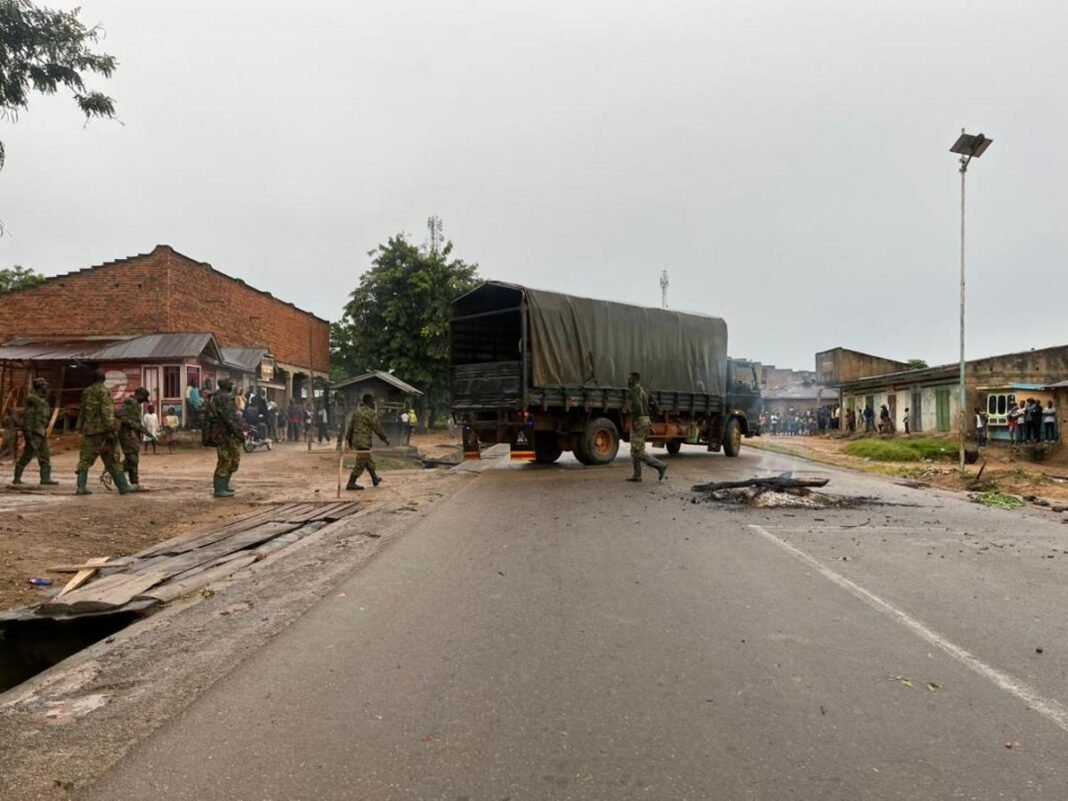nigeria economy
Gunmen attacked a high school in northwestern Nigeria before dawn on Monday, abducting 25 schoolgirls and killing at least one staff member, in a tragic incident that has left communities and families devastated.
The community is left in anguish and confusion, as no group immediately claimed responsibility for abducting the girls from the boarding school in Kebbi State, leaving their motivation unclear and intensifying the distress among families and locals.
Oluwole Ojewale, security analyst at the Institute for Security Studies, reflected on the national pain and unresolved trauma: “There is also grief at the illicit economic gains terrorists secure from these abductions, while citizens feel the government is rendered powerless and unable to shield its people. Even now, more than a decade after Chibok’s abduction, the horror is still felt, and conversations continue to center around the enduring impact of such tragedies.”
Ojewale also expressed deep concern about the emotional weight these school abductions carry: “When schoolchildren are taken, the nation and the world grieve together. Strategic kidnappings like these draw the attention of UNICEF, Save the Children, and many international agencies, shining an urgent light on the pain experienced by affected families and feeding the propaganda machinery of terrorist groups.”
Police said the boarding schoolgirls were forcefully taken from their dorms at 4 a.m. on Monday, a detail that has shocked parents and guardians grappling with fear and heartbreak.
The school, located in Maga in the Danko-Wasagu area, now stands as a symbol of collective mourning and anxiety, according to police spokesperson Nafi’u Abubakar Kotarkoshi.
Kotarkoshi added that the assailants, armed with “sophisticated weapons,” brazenly exchanged fire with guards before carrying out the abduction. The violence and boldness of the attack have intensified local outrage and fear for the safety of children across the region.
Security analyst Oluwole Ojewale from the Institute for Security Studies noted that these kidnappings are met with public sorrow and anger, highlighting public perception that the government remains vulnerable and unable to protect its citizens.
Nigeria continues to reel from complex security challenges. The emotional toll is heavy as amorphous groups of armed bandits, who specialize in kidnapping for ransom, have traumatized hundreds of families across the northern region through high-profile abductions, often demanding exorbitant sums.
Communities live with constant fear, as kidnappings and attacks on villages and roads have become distressingly routine due to limited security presence.
For many residents, the pain is compounded by the realization that these bandits operate independently from Islamist groups like Boko Haram or Islamic State West Africa Province, whose own acts of violence have already left deep scars on the nation.
The trauma of school abductions has haunted the region since 2014, when Boko Haram first shocked the world by taking 276 students from Chibok in Borno State. This tragedy remains etched in the nation’s collective memory.
That abduction marked a lasting era of fear and heartbreak for families, as dozens of children still remain in captivity, fueling ongoing anguish.
Since the Chibok tragedy, the nation has mourned the abduction of at least 1,500 students. Every incident deepens the wounds of families and communities, as armed groups exploit abductions to fund their crimes and exert control over Nigeria’s vulnerable, mineral-rich regions.
In March 2024, relief and gratitude swept the country when more than 130 schoolchildren were finally rescued after more than two harrowing weeks in captivity in Kaduna State. Their return brought fleeting joy amidst sustained hardship.
Despite this, there is a glimmer of hope as school raids have become less frequent in recent years, thanks to government measures in hot spots—including difficult but necessary decisions to close schools for extended periods. Still, anxiety remains ever-present for students and families.
You may also like
Most read







